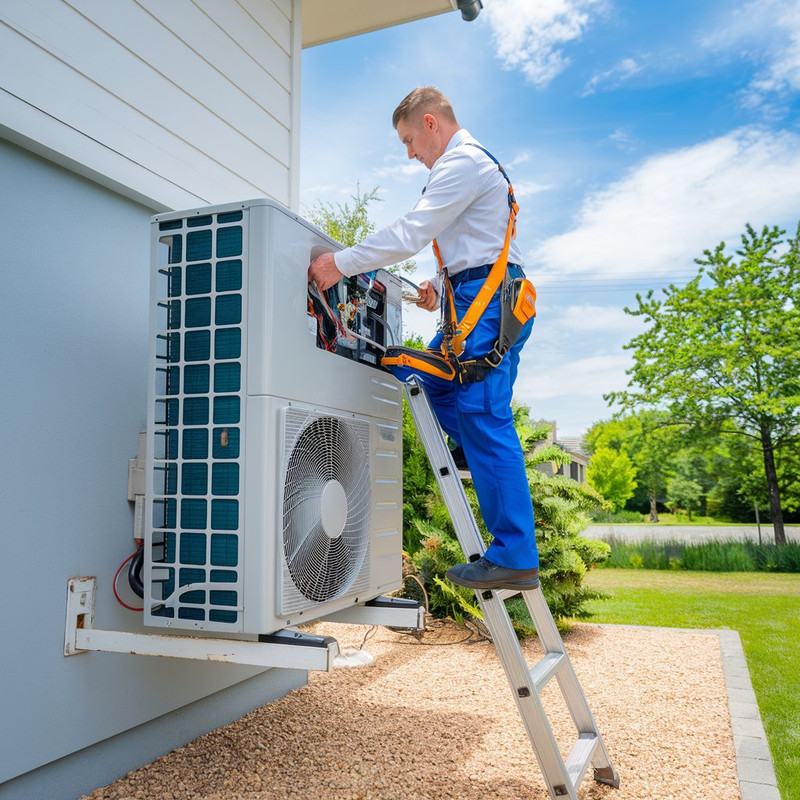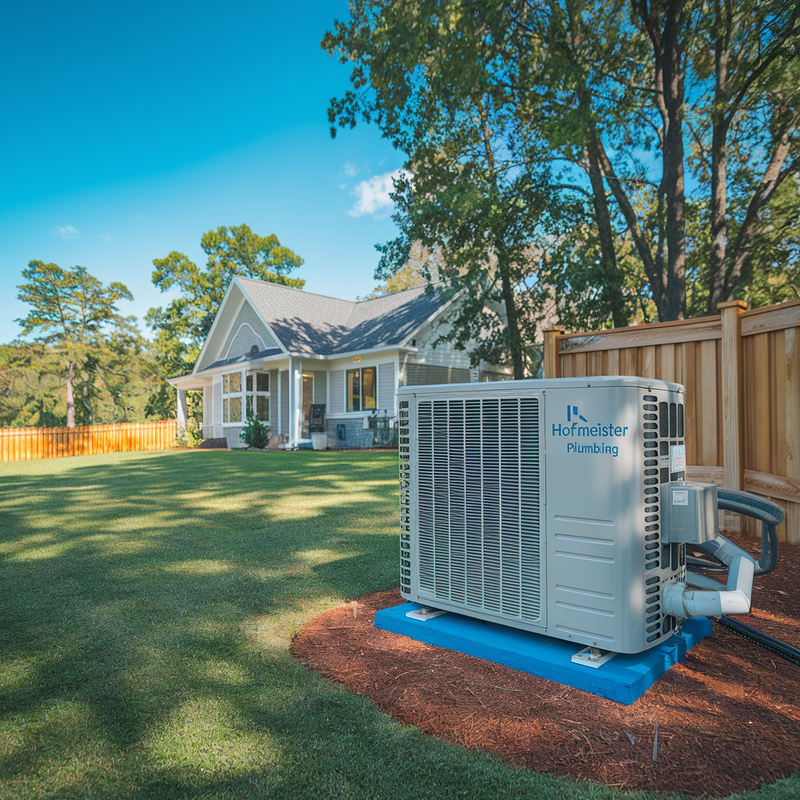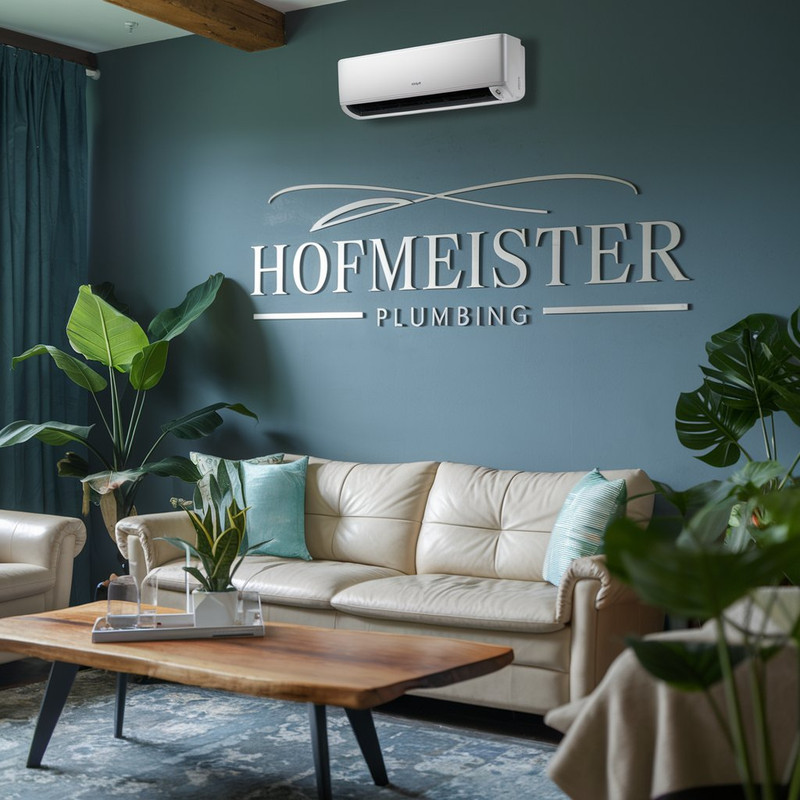For New Jersey homeowners with older AC systems, the phase-out of R-22 might feel like a daunting challenge. Since its production ban in 2020, repair costs have skyrocketed, leaving many to contend with soaring utility bills and frequent breakdowns. This situation may have you wondering if it's time to transition to newer, more eco-friendly refrigerants. But how can you make this switch smoothly and cost-effectively? Let's explore the best path forward.
Key Takeaways
As R-22 becomes increasingly scarce, New Jersey AC owners with older systems face soaring repair costs. These aging units demand frequent maintenance, which not only spikes energy consumption but also sends utility bills through the roof. Servicing these systems requires certified technicians who possess specialized knowledge—a rare breed indeed. But there's a silver lining! Transitioning to modern refrigerants like R-410A can significantly boost efficiency while aligning with environmental goals. Upgrading your AC system isn't just about staying cool; it's about slashing your carbon footprint and reaping long-term economic benefits.
The History and Impact of R22 in the Cooling Industry
Developed in the 1930s, R-22 swiftly became a pivotal player in the cooling industry. This hydrochlorofluorocarbon (HCFC) compound made its mark not just in sprawling industrial settings, but also became a household staple in everything from freezers to air conditioners. Its charm lay in its ability to work with smaller compressors and piping systems, which was quite the engineering marvel at the time. Of course, working with its higher pressures presented its own set of challenges, adding a layer of intrigue to its widespread adoption. The transition to R-410A, which began replacing R-22 around 2001, marked a significant shift in the industry due to its enhanced efficiency and different handling requirements.
Understanding the Regulatory Landscape and R22 Phase-Out Timeline
Navigating the world of refrigerants can be a bit like exploring an intricate maze, especially when it comes to R-22. Its story begins in the late 1980s, when the Montreal Protocol set out to phase out certain substances that harm our planet's protective ozone layer. Among these was R-22, a popular but ozone-depleting refrigerant. Fast forward to 2010, and R-22 was no longer allowed for use in new air conditioning systems. By 2020, its production came to a complete standstill. Now, the only R-22 available is either recycled or stockpiled, making it a rare and costly commodity. The Environmental Protection Agency (EPA) diligently enforces these rules, aiming to protect https://rentry.co/rrxtbv8b our environment while ensuring compliance. For technicians, certification is a must to safely service systems using R-22. As this refrigerant becomes increasingly scarce, understanding these regulations helps you make savvy choices about your AC system, keeping it in top shape while being mindful of the environment. The phase-out of ozone-depleting substances is expected to reduce skin cancer risk and slow climate change, highlighting the importance of transitioning to environmentally friendly alternatives.
Challenges Faced by New Jersey AC Owners With Older Systems
Navigating the world of R-22 and its impact on older AC systems in New Jersey unveils a complex web of challenges.
Imagine dealing with staggering repair costs, all because R-22 Freon has become a rare commodity since its production and importation were halted in 2020. Your trusty old AC unit, while a faithful companion over the years, is now an energy hog, steadily increasing your utility bills and raising environmental concerns due to its ozone-depleting tendencies.
Frequent maintenance becomes your new norm as you strive to prevent leaks, but each repair or recharge with R-22 feels like a costly endeavor. The need for technicians with specialized knowledge becomes apparent, as does the crucial decision-making process of weighing repairs against the possibility of replacement. In light of the R22 production phaseout, these decisions are further complicated by the drastic price increases that have occurred over the past few years.
The plot thickens with the rising costs of refrigerants and the looming potential health risks posed by leaks. Ensuring compliance with disposal regulations adds yet another layer of complexity to your journey.
Amidst all of this, planning for future replacements becomes not just a priority, but a necessity.
Exploring Replacement Options and Transition to New Refrigerants
Transitioning from R-22 to new refrigerants offers New Jersey AC owners an opportunity to boost efficiency and embrace environmental responsibility. Imagine your AC system running smoother and cooler with R-410A, known for its exceptional cooling capacity, or retrofitting an older unit with R-407C for a fresh lease on life. If extending the longevity of your existing setup is your goal, consider R-438A and R-422D, which seamlessly integrate without necessitating an oil change. The phase-out of R-22, which began under the Montreal Protocol, highlights the commitment to regulate ozone-depleting substances for environmental protection. For those seeking a more sustainable path, R-454B beckons as an eco-friendly choice, though it's important to weigh the considerations. Retrofitting older systems can be an investment, and there's the potential risk of voiding warranties. However, new systems specifically designed for these advanced refrigerants promise peak performance and adherence to the latest environmental regulations. Embrace the change and let your AC system lead the way to a greener future!
Economic and Environmental Benefits of Upgrading AC Systems
Transforming your AC system into a modern marvel offers a treasure trove of benefits for both your wallet and the planet. Imagine watching your energy consumption plummet, followed by the delightful surprise of lower utility bills each month.

With fewer breakdowns and minimal maintenance needs, your savings continue to stack up over time. As an added bonus, your home's value gets a refreshing boost, making it irresistibly attractive to future buyers. Moreover, upgrading to modern AC units reduces energy consumption significantly, contributing to cost savings on electricity bills and overall financial benefits.
On the environmental front, upgrading to a state-of-the-art AC system means shrinking your carbon footprint. These systems sip less energy and embrace eco-friendly refrigerants like R-410-A, aligning with efforts to safeguard the ozone layer and promote sustainability.

And let's not forget the cherry on top—tax incentives and rebates that sweeten the deal and ease the initial investment. Over time, the reduced energy and maintenance expenses often outshine the initial cost, making this upgrade not just smart, but truly rewarding.
Importance of Maintenance and Certified Servicing for Existing Systems
Keeping your existing R-22 AC system in top shape is like nurturing an old classic car; it requires attention and care to retain its charm and performance. Regular maintenance is the key to minimizing leaks and avoiding the hefty costs of frequent recharges, all while extending the life of your cooling companion. Imagine catching potential issues early, thanks to the keen eye of an EPA-certified technician who uses electronic leak detectors and expertly recovers refrigerant during repairs. This proactive approach not only keeps unexpected breakdowns at bay but also helps you save on energy consumption and utility bills. With R-22 supplies becoming as rare as a collector's item, maintaining a strong bond with your trusty AC ensures you're ready for a smooth transition to the next generation of cooling marvels. By preserving its efficiency, you're not just keeping your cool—you're setting the stage for an effortless upgrade when the time comes. Additionally, EPA-approved substitutes like R-410A offer a more environmentally friendly option for those considering a new system, ensuring compliance with the phase-out regulations.
Frequently Asked Questions
How Can I Determine if My AC System Uses R22?
To unravel the mystery of your AC system's refrigerant type, start by examining the nameplate. It's like a treasure map, guiding you to clues such as R-22 labels or certification stickers. Older systems often harbor the elusive R-22, a refrigerant that whispers stories of yesteryears. For the curious investigator, tools like PT charts or refrigerant analyzers can serve as a magnifying glass, offering verification and clarity. Happy sleuthing!
Are There Any Health Risks Associated With R22 Exposure?
While R-22 exposure might sound like something out of a sci-fi thriller, it actually carries real-world health risks. Imagine being enveloped in an invisible cloud that can make you feel dizzy and confused, as if you've just stepped off a spinning carnival ride. High concentrations of R-22 can do just that, and even more alarmingly, they can lead to serious cardiac issues. If R-22 touches your skin or eyes, you'll feel its fiery sting. So, if you ever find yourself experiencing any of these symptoms after encountering R-22, it's crucial to seek medical help immediately. Better safe than sorry in this chemical conundrum!
What Are the Signs My AC System Needs Servicing?
When your AC starts whispering unusual tales through odd noises, struggling to exhale with weak airflow, or sending warm breezes instead of cool relief, it's waving a flag for attention. If it seems to be stuck in a loop of frequent cycling or if your energy bills are climbing to new heights, it's time to give your AC some love. Tending to these signs not only keeps your comfort intact but also helps nip potential problems in the bud, sparing you from wallet-draining repairs or replacements down the line.
Can I Still Buy R22 for Personal Storage and Future Use?
Curious about stocking up on R-22 for your own use? You're in luck! While you can still get your hands on R-22, it's only available in reclaimed form. It's open season for personal buyers, though the price is steep given its scarcity. Keep in mind, this precious commodity is only meant for existing systems, so plan your storage wisely!
Are There Insurance Implications for Using an Outdated R22 System?
With an outdated R-22 system, you might find yourself navigating a labyrinth of higher premiums and coverage restrictions. Imagine your insurance policy as a treasure map, where certain areas are marked with "X" for exclusions or limitations. The real kicker? Potential liability for environmental damage lurks like a hidden trap. Upgrading your system not only clears these obstacles but could also lead to a treasure trove of reduced costs.

Conclusion
Hey there, Harold Hofmeister here. I've been plumbing in Westwood, NJ, for over 40 years, and I want to share some thoughts on the R-22 phase-out. If you're an AC owner in New Jersey, you're at a significant turning point. Switching to newer, eco-friendly refrigerants is not just a smart move for the environment—it's a wise financial decision too. Upgrading your system can help you avoid those steep repair costs and keep those utility bills in check. And remember, regular maintenance with certified professionals ensures your AC runs smoothly and efficiently. Embrace this change as a chance to future-proof your home's cooling system. Trust me, it's worth it in the long run.